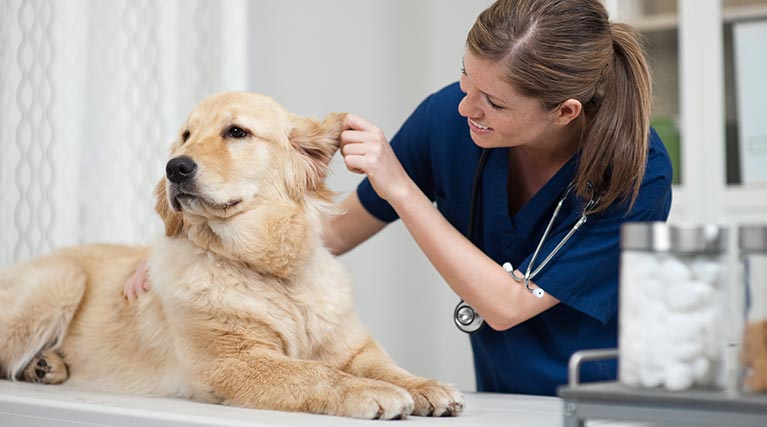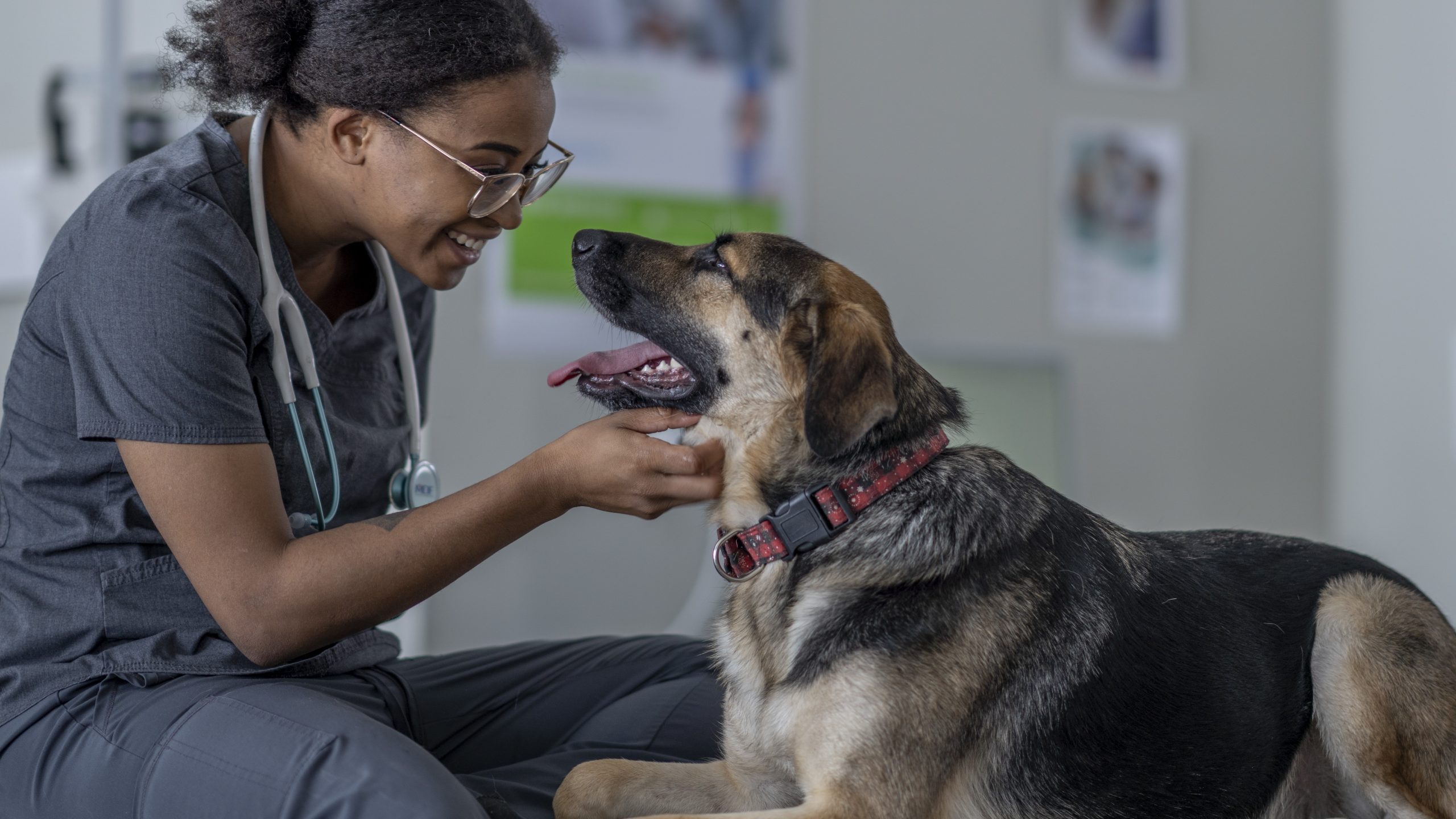Exactly How Pet Health Checkups Help Discover Early Signs of Illness and Maintain Your Pet Healthy
Exactly How Pet Health Checkups Help Discover Early Signs of Illness and Maintain Your Pet Healthy
Blog Article
Inoculation Guidelines From Your Trusted Vet
Inoculation standards offered by your trusted veterinarian play an essential role in safeguarding your pet dog's health and health. Additionally, resolving typical misunderstandings surrounding vaccines can further enhance pet owners' self-confidence in these precautionary steps.

Relevance of Inoculations
Vaccinations play an essential duty in safeguarding animals against a series of preventable illness. By boosting the body immune system to identify and deal with particular virus, vaccinations significantly minimize the occurrence of contagious conditions that can influence a pet dog's health and wellness and durability. Not just do vaccinations safeguard specific animals, however they also contribute to herd immunity, therefore lowering the total prevalence of conditions in the animal population.
Timely vaccinations help to mitigate the spread of illness such as rabies, parvovirus, and distemper, which can have severe repercussions for both family pets and humans. Furthermore, inoculations are usually a demand for boarding facilities, brushing solutions, and canine parks, making them important for those that want to socialize their family pets.

Core Injections for Animals
While the particular vaccination requirements of pets can vary based upon individual elements, core vaccines are globally suggested to protect versus one of the most serious and common illness (Pet Vaccinations). Core injections are those considered necessary for all pets, no matter of their way of living or geographic area, as they safeguard versus potentially deadly and highly transmittable ailments
For pet dogs, the core injections consist of those for canine distemper, parvovirus, adenovirus (liver disease), and rabies. Adenovirus can result in liver disease, while rabies is a zoonotic disease that postures a danger to both family pets and human beings.
In pet cats, core injections incorporate feline panleukopenia, feline calicivirus, feline herpesvirus (rhinotracheitis), and rabies. Feline panleukopenia is an extremely transmittable viral condition that impacts the immune system and intestines. Calicivirus and herpesvirus are major factors to upper respiratory system infections in cats, while rabies continues to be an essential worry for public health.
Talk to your veterinarian to guarantee your family pets receive their core vaccinations on timetable.
Non-Core Vaccines Explained
Non-core vaccines are customized to resolve specific dangers connected with an animal's way of living, environment, and direct exposure to certain conditions. Unlike core injections, which are widely recommended for all pets, non-core vaccinations are taken into consideration based on individual circumstances. These vaccinations are specifically essential for pets that might come across distinct virus because of their geographical location, traveling habits, or tasks.
Examples of non-core vaccinations include those for Bordetella bronchiseptica, which is connected to kennel cough, and Lyme condition, caused by ticks. Pet dogs that regularly connect with various other animals, such as those in boarding facilities, pet dog parks, or grooming environments, might her response take advantage of Bordetella vaccination. If you live in a location where Lyme illness is prevalent, immunizing against this illness can be a prudent option for outdoor-loving pet dogs.
Various other non-core vaccinations may consist of those for leptospirosis, canine flu, and feline leukemia, depending upon the details risk aspects present. It is important to have a detailed discussion important source with your vet regarding your family pet's lifestyle and the prospective demand for these vaccines, making sure a customized inoculation method that ideal protects your hairy good friend.
Vaccination Schedule Summary

As animals grow, it is essential to comply with the advised booster vaccinations. Veterinarian Enterprise. For grown-up animals, core vaccinations are commonly offered every one to 3 years, depending on the specific vaccination and neighborhood laws. Non-core vaccines might be suggested based on way of living elements and regional disease frequency, demanding a tailored technique
Normal veterinary examinations are critical for upgrading inoculation schedules. Your veterinarian can supply guidance on the most proper immunizations for your pet, factoring in age, wellness condition, and environmental dangers. By staying aggressive and informed, pet dog proprietors can ensure their content fuzzy friends receive reliable and prompt inoculations, consequently guarding their health and health throughout their lives.
Usual Myths About Vaccinations
False impressions regarding pet dog vaccinations can cause confusion and hesitation among family pet proprietors pertaining to the immunization procedure. One prevalent myth is that vaccinations are unneeded for indoor animals. While it's true that indoor pet dogs deal with lower dangers, they are not completely unsusceptible to illness, as virus can be introduced with different methods, including human clothing and other pet dogs.
One more misunderstanding is that vaccines can create the conditions they aim to stop. In truth, a lot of vaccines contain inactivated or attenuated pathogens, which can not trigger illness in healthy and balanced animals. Some pet dog proprietors likewise think that their animals ought to not be vaccinated if they are currently healthy; nonetheless, inoculations are an aggressive measure that assists prevent the beginning of disease.
Furthermore, lots of pet dog proprietors are afraid that vaccinations will certainly result in long-term wellness problems. While negative effects can take place, they are short-term and generally light. The benefits of vaccination-- securing pet dogs from possibly lethal illness-- far surpass the dangers. Recognizing these typical misconceptions is crucial for accountable pet dog ownership and ensuring the health and wellness of your furry companions. Constantly consult your vet for accurate info tailored to your pet's specific needs.
Conclusion
In summary, adherence to vaccination guidelines is crucial for ensuring the health and durability of family pets. Core injections supply necessary defense versus severe illness, while non-core vaccines deal with particular dangers based upon private way of livings. Establishing a thorough inoculation timetable, together with normal veterinary examinations, promotes ideal health and wellness administration. Dispelling typical myths surrounding inoculations further enhances the value of educated decision-making in family pet treatment. Eventually, an aggressive technique to vaccinations is crucial for maintaining animal well-being.
Not just do inoculations safeguard private pets, however they likewise contribute to herd immunity, consequently decreasing the total frequency of conditions in the pet population.
False impressions concerning pet inoculations can lead to complication and reluctance among animal proprietors pertaining to the booster shot process. While it's real that interior pet dogs face lower dangers, they are not completely immune to conditions, as virus can be introduced with numerous means, including human clothes and various other family pets.
Some family pet proprietors additionally think that their pets must not be vaccinated if they are currently healthy; however, vaccinations are a positive procedure that helps protect against the start of disease.
The benefits of vaccination-- protecting pets from possibly deadly illness-- far surpass the risks.
Report this page